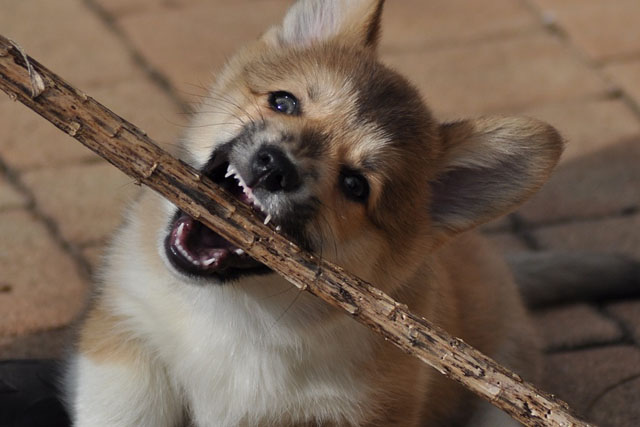What should I do if my puppy bites too hard? - Effective techniques for bite inhibition


Understanding why puppies bite
It is important to understand that biting is a natural behavior for puppies. Puppies explore the world with their mouths, and biting is a way for them to interact and learn about their environment. Additionally, puppies may bite during play as a way to engage with their littermates or their human family members.
However, it is crucial to teach puppies bite inhibition, which is the ability to control the force of their bites. This is important because as puppies grow into adult dogs, their bites can cause harm if not properly controlled.
Teaching bite inhibition through play
One effective technique for teaching bite inhibition is through play. When your puppy bites too hard, let out a high-pitched yelp to mimic the sound of a hurt littermate. This will startle your puppy and make them realize that their bite was too hard.
Immediately after yelping, stop playing with your puppy and ignore them for a few seconds. This teaches them that biting too hard leads to the end of playtime. After a short pause, resume playing with your puppy, but be mindful of their biting behavior.
If your puppy continues to bite too hard, repeat the yelping and pausing process. Consistency is key in teaching bite inhibition, so it is important to be patient and persistent with this technique.
Using positive reinforcement to discourage hard biting
In addition to teaching bite inhibition through play, positive reinforcement can be used to discourage hard biting. Whenever your puppy bites softly or licks instead of biting, praise them and offer a small treat or a favorite toy as a reward.
By rewarding gentle behavior, you are reinforcing the idea that biting softly is more desirable than biting too hard. This positive reinforcement helps your puppy understand what behavior is expected of them.
It is important to note that punishment or physical force should never be used to discourage biting. This can lead to fear or aggression in your puppy and can be counterproductive to their training.
Redirecting biting behavior onto appropriate toys
Another effective technique for dealing with hard biting is to redirect your puppy's biting behavior onto appropriate toys. Whenever your puppy starts to bite too hard, immediately offer them a chew toy or a bone to bite on instead.
Make sure to have a variety of toys available for your puppy to chew on. This will help them understand what is acceptable to bite and what is not. Encourage your puppy to chew on the toys by praising them and offering treats when they engage with the toys instead of biting your hands or clothing.
Consistency is key in redirecting biting behavior. Whenever your puppy bites too hard, consistently redirect their attention to the appropriate toys. Over time, they will learn that biting on toys is more rewarding than biting on inappropriate objects.
Consistency and patience in training
Training your puppy to stop biting too hard requires consistency and patience. It is important to be consistent in your reactions to their biting behavior and to use the same techniques every time.
Additionally, it is important to be patient with your puppy. Remember that they are still learning and it takes time for them to understand what is expected of them. Stay calm and avoid getting frustrated or angry, as this can hinder the training process.
Consistently reinforce the desired behavior and redirect biting onto appropriate toys. With time and patience, your puppy will learn to control the force of their bites and engage in gentle play.
Seeking professional help if needed
If your puppy's biting behavior persists or becomes aggressive, it may be necessary to seek professional help from a dog trainer or behaviorist. They can assess the situation and provide guidance on how to address the issue effectively.
A professional can help identify any underlying causes for the biting behavior and develop a customized training plan for your puppy. They can also provide additional techniques and strategies to help you teach your puppy bite inhibition.
Remember, it is important to address biting behavior early on to prevent it from becoming a bigger issue as your puppy grows into an adult dog. Seeking professional help can ensure that you are using the most effective techniques and providing the best training for your puppy.


Related posts